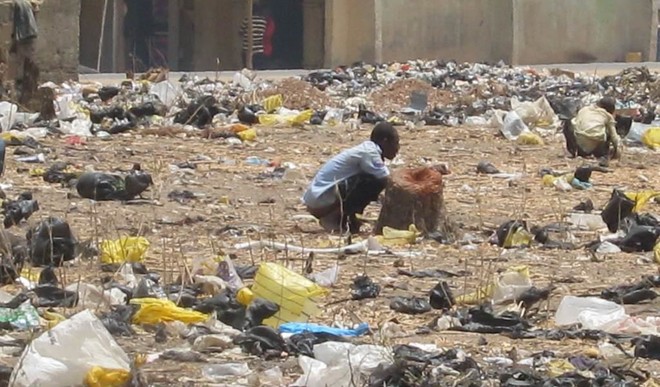Bwari Area Council is topping the list of councils where open defecation and other environmental abuses are most practiced in the Federal Capital Territory (FCT).
A report from the Monitoring and Inspection Department of the FCTA shows that the council recorded 8,271 cases of environmental nuisances between January and November this year.
Abuja Municipal Area Council (AMAC) followed closely with 7,626 cases of environmental nuisances reported by the department during the period under review.
Though the document does not give a breakdown of the environmental abuses perpetrated in each area council, it however suggested that cases of open defecation, indiscriminate refuse dumping, blocked drainages, double parking, tricycle/motorcycle obstruction, suspected illegal development, street trading and overgrown vegetation were often reported in Bwari Area Council.
The director, Department of Monitoring and Inspection of FCTA, Olawale Labiyi, who expressed concern over poor sanitation in the area council, revealed that cases of environmental nuisances were most recorded around Dutse, Usuman Dam and Zuba areas in 2019.
Labiyi, who was speaking on some of the activities of the department between January and November 2019, noted that the department also reported numerous cases of refuse dumping, blocked/lack of drainages and street trading around Gwa-Gwa, Karimo, Jikwoyi and Karshi areas of AMAC.
An analysis of the report by the department showed that environmental abuse was at its peak in September and October 2019, when 1189 and 1206 cases respectively, were identified and reported in the council area.
Meanwhile in AMAC, the most environmental nuisances were reported between February and May 2019, when 781 and 788 cases were reported.
Issues of open defecation, refuse dumping, littered area, blocked drainages and bad roads were said to have contributed the most to environmental nuisance in AMAC during the period
Labiyi also expressed concern over indiscriminate dumping of construction wastes within the Capital City centre.
He said the department in the course of discharging its functions observed that construction companies often dumped wastes in the wrong places within the city centre.
“Among the issues monitored in the city were the evacuation of domestic waste, vegetation and construction wastes, general cleanliness of the environment, social nuisance and areas prone to security risks and informal sector.
He therefore called on the Department of Development Control and the Abuja Environmental Protection Board to be proactive in ensuring that construction companies did not dump waste indiscriminately.
The director, however, said with the concerted efforts of the department, the level of cleanliness in the city had improved, adding that education and health institutions have also witnessed an improved state of their environment.
“The sanitation state of markets, neighbourhood shopping centres and housing estates within the city has improved. Also there is a slight improvement in the sanitation condition in the major settlements in the area councils,” he said.
The Monitoring and Inspection Department was established in April 2012 to ensure improved effectiveness and efficiency in service and project delivery by the FCT Secretariat, Department and Agencies.

 Join Daily Trust WhatsApp Community For Quick Access To News and Happenings Around You.
Join Daily Trust WhatsApp Community For Quick Access To News and Happenings Around You.



